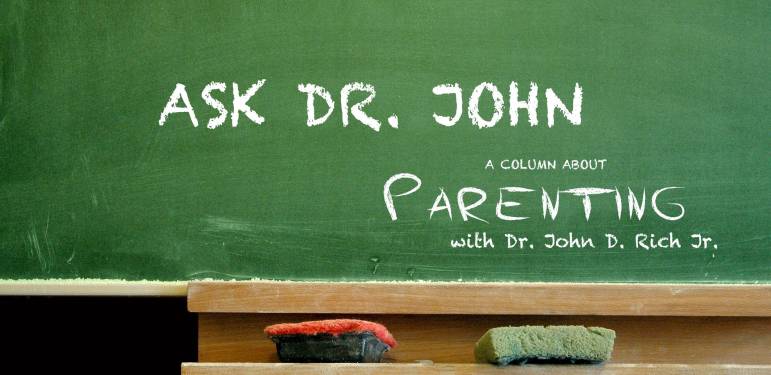
 In spite of America’s claim to be a place where all people are free and equal, the amount of economic mobility that people can achieve is relatively small. According to a recent article in The Atlantic , “…the amount of money one makes can be roughly predicted by how much money one’s parents made, and that only gets truer as one moves along the earnings spectrum.”
In spite of America’s claim to be a place where all people are free and equal, the amount of economic mobility that people can achieve is relatively small. According to a recent article in The Atlantic , “…the amount of money one makes can be roughly predicted by how much money one’s parents made, and that only gets truer as one moves along the earnings spectrum.”
What’s more, according to an article published in August 2017 in Focus, “A child’s birth circumstances have a large effect on his or her chances in life.” To wit, children who are born into poverty are likely to have lower academic achievement, lower income as adults, more behavior problems, are more likely to be teen parents, and less likely to attend or graduate from college. Children growing up in families with adequate financial resources are more likely to have jobs, make more money, avoid participation in welfare programs, be healthier, and live longer.
When it comes to school, the income gaps in literacy, math, and language skills, as well as conduct problems and hyperactivity are apparent before school even starts. The impact of poverty on children’s futures is less about schools and more about the parenting that impoverished children are likely to experience.
I can already hear some readers taking offense to this statement. As someone who grew up on Section 8 and Welfare, I can understand how what I am arguing may be taken as an elitist insult to the poor. Please, let me keep explaining.
Policies that attempt to close the income gap between poor students and their more economically advantaged counterparts tend to focus on changes to curricula, teaching strategies, after-school programs, and administrative functions. However, a large body of research demonstrates that parents interact with their children less, are less emotionally engaged with their children, ask their children fewer questions, use more punitive discipline, and express a less varied vocabulary.
As I have written on my website and in my upcoming book, a key component in the life of a well-adjusted child is parental sensitivity and responsiveness. The degree to which a parent responds to a child’s needs, and is sensitive to his concerns is the degree to which he feels like a significant member of a family, whose physical and emotional life is important. When a parent does not respond promptly and sensitivity, a child is more likely to express his frustration with behaviors directed at others (called “externalizing behaviors”) or toward himself (called “internalizing behaviors”).
So now, why? If the problems we see from poor children are more about their home life than about their school’s effectiveness, then it is important to ask why so that we may be able to help parents overcome the obstacles they are experiencing. Though some people may argue that people are poor because they make bad choices and are somehow inferior, I agree with the author of the paper I cited above.
In short, the author explains that parents who are struggling economically have “behavioral bottlenecks” which make it harder to use positive parenting strategies. Let’s face it: When your child acts inappropriately, it takes less time to spank her than it does to sit her down, discuss why what she did was displeasing, and brainstorm alternative behaviors that she can use in similar situations in the future. Positive parenting is a luxury.
Meanwhile, poverty is stressful. It takes mental energy to juggle bills, worry about possible evictions, navigate dangerous neighborhoods, and look for extra sources of income. People who have inadequate resources are more likely to battle with depression and anxiety, and to feel constant assaults to their self-esteem as they compare themselves to other people who are more successful.
According to Abraham Maslow, people have different needs, which exist along a kind of hierarchy. Until a person satisfies a need at one level of the hierarchy, they are hypothetically unable to focus on any needs above it. At the bottom of the hierarchy are the physiological needs: food, water, shelter. For some parents, these needs are the ones that are on their minds all the time. If Maslow’s theory is correct, parents who aren’t sure how they are going to put food on the table or a roof over their heads, don’t have the mental energy to focus on the higher needs of safety, love and belonging, esteem, or self-actualization (the next higher needs on the hierarchy, in ascending order).
It’s possible – hear me out – that poverty affects children in numerous and awful ways because the stress, danger, depression, anger, and anxiety are so all-consuming for their parents that there is just little time for teaching children the bigger skills of emotional regulation, executive functioning, positive social skills, or intrinsic academic motivation.
However, I believe, along with the authors of the articles we’ve been following here, that many parents want to raise their children to be successful, competent, and economically comfortable. There are a few pilot programs that the authors discuss, which have managed to improve the outcomes of children living in poverty.
One study that they cite provides evidence that giving parents a higher Earned Income Tax Credit (EITC) is related to lower levels of child neglect and less involvement with child protective services, especially among low-income single mothers. In essence, providing parents with more money is positively connected to their parenting.
This finding reminds me of something Martin Luther King wrote about shortly before he was assassinated. In his book Where do we go from here?, King advocated for a guaranteed annual income. In short, he proposed that society should fight the evil of poverty through either a guaranteed job, or if a job could not be provided, a base income that would ensure that all Americans could afford to provide the basic necessities.
King went further to argue that the elimination of poverty could simultaneously address other societal ills as a result:
“…we are likely to find that the problems of housing and education, instead of preceding the elimination of poverty, will themselves be affected if poverty is first abolished. The poor transformed into purchasers will do a great deal on their own to alter housing decay. Negroes who have a double disability will have a greater effect on discrimination when they have the additional weapon of cash to use in their struggle.
Beyond these advantages, a host of positive psychological changes inevitably will result from widespread economic security. The dignity of the individual will flourish when the decisions concerning his life are in his own hands when he has the means to seek self-improvement. Personal conflicts among husbands, wives, and children will diminish when the unjust measurement of human worth on the scale of dollars is eliminated.”
Poverty affects children in multiple, undesirable ways. It seems that the primary pathway is the effect of being poor on the resources of parents, who encounter behavioral bottlenecks that lessen their capacity to provide the kind of positive parenting that research encourages. Isn’t it time to think through the economic injustices which are hurting our children? Our world has decided posthumously that Martin Luther King Jr. is a prophet who challenged our policies and called us to a better existence. Yet, his economic message has been largely ignored.
Perhaps it is time to give King’s ideas a second thought. There’s nothing to lose in thinking about it.

Ask Dr. John/Parenting
Dr. John D. Rich Jr. is an educational psychologist and associate professor of Psychology at Delaware State University, a retired United Methodist minister, a full-time husband and father of two sons. His articles appear in Psychology Today, and you can hear Dr. John every other Wednesday at 4:30 p.m. on the Matt Connarton Unleashed radio show on WMNH 95.3 FM. Also, check out drjohnrich.com for more info. Got questions? Dr. John will help you navigate. Reach him directly at info@drjohnrich.com.










